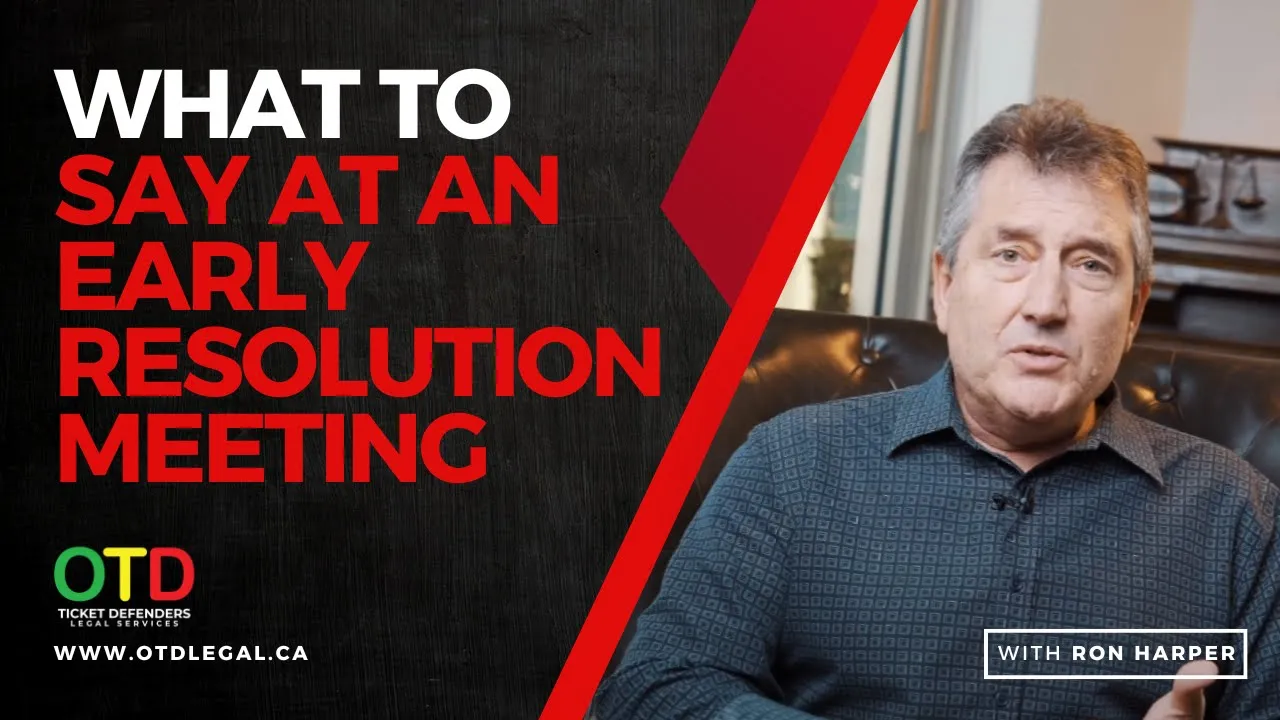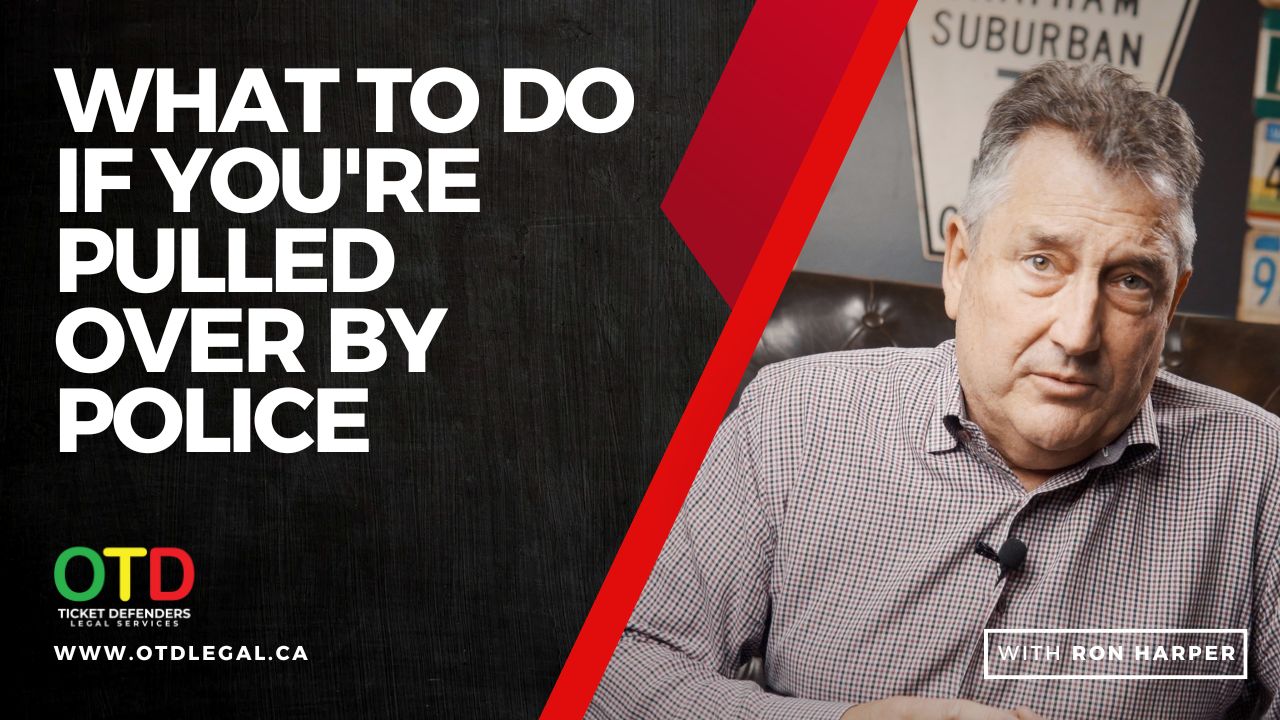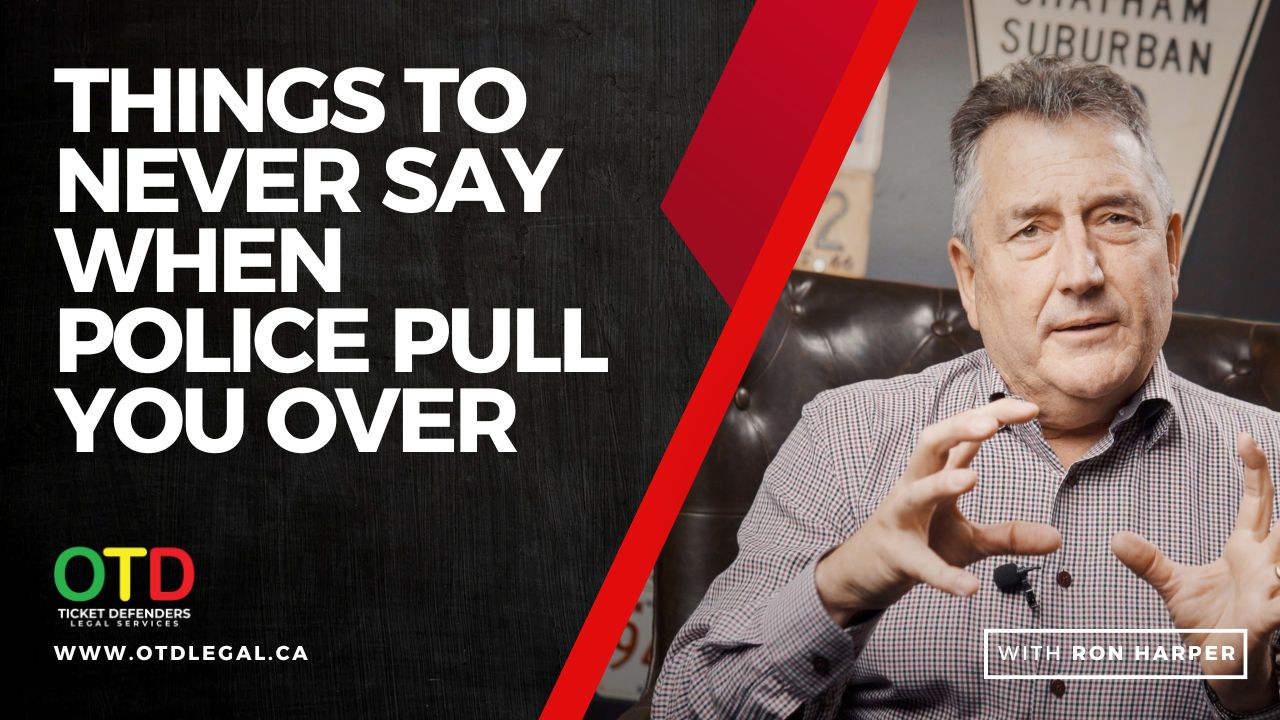Your driving record is important and a conviction for a traffic ticket can have surprisingly large consequences and penalties. Whether you are a regular Ontario driver who needs to drive for work or family obligations, or a professional truck driver whose livelihood is dependent upon their ability to drive, it is important to know how you could end up convicted of an offence, what the consequences of that conviction could mean, and what you can do to try and fix that conviction.
Let’s take a look!
How Can I Be Convicted of a Traffic Ticket?
Being convicted under the Highway Traffic Act, the Compulsory Automobile Insurance Act, or even the Cannabis Control Act can result in serious consequences that could impact you for years if not your entire lifetime. It is important that you know your legal rights and options before being convicted to ensure that you are making informed legal decisions to avoid unnecessary problems. However, sometimes problems occur or legal missteps are made that result in being convicted.
The following are some of the most common grounds under which a defendant is convicted of a traffic ticket in Ontario.
“I Paid the Ticket”
Sometimes defendants just pay a ticket as soon as they get it from the police.
By paying a ticket, a defendant is entering a guilty plea to the charge as it was originally issued by the police. This could be because they felt they are guilty and it was simply the right thing to do. Sometimes a police officer may suggest that a defendant should simply pay the ticket because they were given a break at roadside or because they could face more severe consequences if they fight it. It could also be because they didn’t fulling understand their legal options or the full consequences of a conviction. Whether or not someone feels that they are guilty of an offence, most charges before the court can at least be reduced to a lesser offence and in some cases can be thrown out entirely.
Simply pleading guilty to a ticket could mean suffering through absolutely unnecessary penalties or consequences for years.
“I Forgot to File My Ticket”
If it is your intention to fight your charge(s) at court and protect your interests, it is important that your ticket is filed with the court as soon as possible. Neglecting to file your ticket with the court in advance of your filing deadline means that the court will convict you of the offence. A week or two after that conviction, you will receive a Notice of Fine and Due Date from the court informing you of the conviction, how much your total-payable fine is, and when that fine must be paid by. Different courts have different policies regarding how and when a ticket must be filed. Our staff can guide you through those jurisdictional differences and take care of any court filings on your behalf.
“I Missed a Court Date”
Missing a court date is bad.
The court has allocated court time for your hearing, a Justice of the Peace is scheduled to hear your matter, the Prosecutor has prepared to argue their case, and any necessary police or witnesses have been scheduled to be present at court. The only thing missing is you.
This will generally result in one of two things happening. The worst case is that you are convicted by the court without your defence being presented and without your voice being heard in response to penalties being issued by the court; you are effectively at the court’s mercy.
The best-case scenario would be that your matter is adjourned to another court date: likely an ex parte trial date where you will be convicted whether or not you are present. A warrant could also be issued for your arrest to ensure that you are brought before the court.
“I Lost My Trial”
Even if you file your ticket on time and attend your court dates, it is possible that you could be convicted of the original offence by the court. It could be that you ran a poor defence or perhaps the Prosecutor simply made a stronger argument. It could also be that the presiding Justice made an error in law and you were incorrectly convicted.
However you got convicted, a conviction is a conviction and now you need to decide whether to pursue the matter further or leave the conviction as it is. If you are considering contesting a conviction where you lost at trial, it is important to understand whether or not you have a legal basis to do so. Speaking with our staff can help sort out whether or not this is something that you should consider.
What Are the Consequences of a Conviction?
Being convicted by the court is rarely a good thing. A conviction at court comes with consequences. But what are those consequences? Here are some of the most common consequences.
A Record of Conviction
Being convicted at court means receiving a record of conviction. That record of conviction could then be seen by an employer or an insurance company when checking your driving record. While most third parties will generally only see your 3 year driving record, the court will always see your prior convictions no matter how old they are. That history of convictions can come back to haunt you should you receive new charges and have to appear at court again.
A Court Fine
Being convicted by the court almost always means paying a fine to the court. Court fines can range from under $100 to fines up in the tens of thousands of dollars depending on the nature of the offence(s) and the details of what happened. A court fine also comes with a payment deadline. Failing to pay your fine by that deadline can mean that your driver’s license will be suspended.
Demerit Points
Once you have been convicted by the court, that record of conviction is sent to the Ministry of Transportation (MTO). The MTO then applies any further penalties which can include demerit points. Demerit points can range anywhere from 0 demerit points for very minor offences up to a maximum of 7 demerit points for very serious offences. These demerit points can then result in the MTO issuing a warning letter, a mandatory interview with an MTO officer, or an automatic suspension of your driver’s license.
CVOR Points
Just as a normal driver receives a record of conviction and demerit points against their driver’s license, commercial motor vehicle (CMV) drivers can also receive points and a record of conviction against their (or their employer’s) CVOR. The demerit points and CVOR points for any given offence are not always the same. In fact, it is possible that a conviction could result in 0 demerit points for the driver while incurring the highest possible 5 CVOR point penalty against the employer.
COURT ORDERED Driver’s License Suspension
Many charges can result in the court itself issuing a suspension of your driver’s license. There are two types of license suspensions that you could be facing. Some offences carry a discretionary license suspension. These are not mandatory upon conviction and can generally be reduced or avoided at court. Other offences (such as Driving Under Suspension) carry a mandatory suspension of your driver’s license if you are convicted. Some offences define a fixed length of license suspension while others may define a maximum length of license suspension up to which the court may suspend your license.
Escalated Sanctions Penalties
Beyond court-ordered license suspensions or suspensions from the MTO due to demerit points, novice drivers (i.e. G1/G2/M1/M2 licenses) have to be careful of escalated sanctions penalties. These are additional penalties issued by the MTO if a novice driver is convicted for certain offences or for any single offence that carries 4 or more demerit points. The escalated sanctions penalties are as follows:
- 30-day license suspension for the first occurrence
- 90-day license suspension for the second occurrence
- License cancellation and a requirement to re-apply for a G1/M1 after the third occurrence. Any fees paid, credit received for time spent in the program or BDE credit would be forfeited when the license is cancelled. Please note that in the case of a hybrid driver, only the novice-class license is cancelled on the third occasion; their full-class license is maintained.
Imprisonment
One of the most severe penalties that the court can issue is imprisonment. Being imprisoned is not a pleasant experience and results in a significant loss of your personal freedoms. The length of that imprisonment could be days, months, or even years. In cases where imprisonment may be imposed, a defendant should strongly consider obtaining legal representation. An experienced paralegal can argue on your behalf to avoid imprisonment. If imprisonment can not be avoided, then your paralegal can argue to minimize the term of imprisonment or negotiate to see if the imprisonment court be served on weekends to avoid interruptions to your work and family obligations.
Insurance Costs
Insurance companies look at your driving record in determining your insurance costs. The more convictions you have or the more serious those convictions are, the more expensive your insurance costs. Even a single serious offence going to conviction can result in your current insurance policy being cancelled and being forced to seek out very expensive high-risk insurance.
Loss of Employment
Some jobs require that you have a valid driver’s license and are insurable. This could range anywhere from professional truck drivers that run long hauls between Canada and the US through to home care providers that travel to multiple locations in their local area. Being suspended or not being reasonably insurable could result in both the immediate consequence of having your employment terminated, as well as the long-term consequence of no longer being employable in that area of work.
How Can a Conviction Be Corrected?
Addressing a conviction can be complicated. There will be a specific deadline on what paperwork must be submitted to court depending on how the conviction is being addressed. Our staff can help sort out what approach is best suited to your situation and what supporting information and documentation will be required.
There are generally two methods in bringing a convicted matter back before the court.
Filing a Reopening
Preparing and filing a reopening with the court is the simplest and least expensive way to address a conviction. However, only certain types of convictions can be addressed by a reopening. Reopening applications must be filed with the court no later than 15 days from the day that you became aware of the conviction. These applications generally do not require a separate court attendance in speaking to the reasons for the reopening.
Filing an Appeal
Appeals are much more involved than simple reopenings. Appeals may also require that a written transcript of any relevant previous court dates be obtained. Generally, appeals should be filed within 30 days of the conviction date. Failing to do so requires that a separate application for an extension of time to appeal be filed with the court. Appeals are significant legal actions that involve more legal work and cost than a reopening. However, that cost may be worthwhile if the conviction has caused significant problems for you.
How to Avoid a Conviction
The best way to avoid legal missteps and mistakes is to hire a legal representative. While this may cost some money, it is generally the most cost-effective method of defending your charge(s) at court.
A licensed and experienced paralegal knows the law and the legal system. Your court agent can ensure that you know exactly what penalties you are facing and lay out a strategy on how to best address the matter at court. By having a licensed paralegal representing your legal interests at court, you can ensure that you are making informed decisions throughout the court process.
Fortunately, many court cases can be resolved without requiring you to attend court in person. Let your legal representative appear in court on your behalf.
The cheapest and most effective defence is to defend a case correctly the first time. Having to try and correct an erroneous or unnecessary conviction limits your legal options and means having the engage in further legal work and costs.
If you have been charged by the police or are considering a reopening or an appeal of a conviction, OTD Ticket Defenders Legal Services can help you. Our friendly staff offer a no-cost, no-obligation initial consultation to go through your case history and details with you. We can be reached via the toll-free number 1-844-647-6869, by text at 226-240-2480, or by email at help@otdlegal.ca. You can also submit an online consultation request any time of the day or night and one of your staff will reach out to you during regular business hours to assist you.
Do You Need To Defend Yourself Against An Ontario Traffic Ticket?
If you need to defend your driving rights against an Ontario traffic ticket you should contact us as soon as possible. We have skill and experience in helping drivers just like you respond to a variety of traffic tickets and provide free, confidential consultations to empower you to fight your charges. We help drivers throughout Ontario including Cambridge, Georgetown, London, Windsor and from our home office in Kitchener. Contact us online or call us directly at 1.844.647.6869 or text us a copy of your ticket to 226-240-2480.







